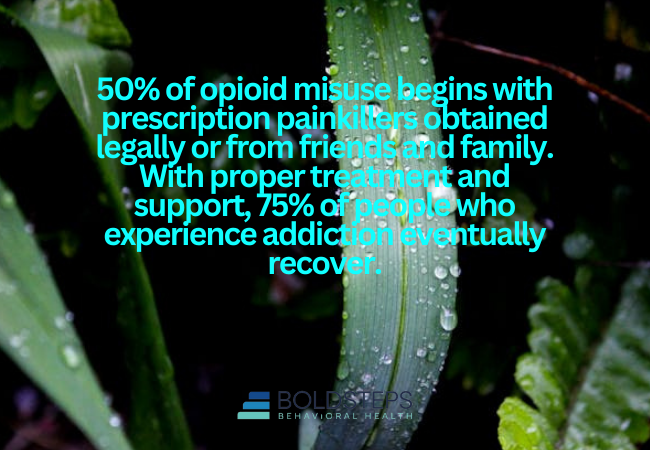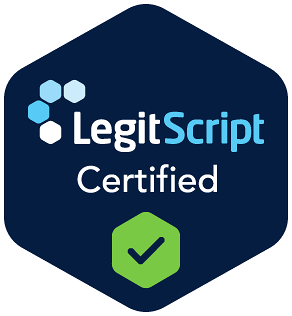The opiate epidemic continues to be one of the most pressing public health crises in the United States, impacting individuals, families, and communities nationwide. With millions affected by opioid misuse, overdose deaths, and the devastating consequences of addiction, the need for effective and accessible treatment options has never been greater.
For those struggling with opiate dependency, there is hope. Recovery is possible with the right support, resources, and evidence-based care. At Bold Steps Behavioral Health, we are committed to providing compassionate and effective treatment programs to help individuals safely overcome opiate addiction and reclaim their lives.
In this comprehensive guide, we’ll explore the scope of the opiate epidemic, the challenges of opiate dependency, and the treatment options available to help individuals achieve lasting recovery.
The Scope of the Opiate Epidemic
Opiates, including prescription painkillers like oxycodone and hydrocodone, as well as illicit drugs like heroin and synthetic opioids such as fentanyl, are highly addictive substances. They interact with the brain’s reward system, producing a euphoric effect that can lead to misuse and dependency.
Key Statistics on the Opiate Epidemic:
- Prevalence of Opioid Use Disorder: Over 2.1 million Americans suffer from opioid use disorder (SAMHSA, 2021).
- Overdose Deaths: In 2021, more than 80,000 lives were lost to opioid-related overdoses (CDC).
- Prescription Drug Misuse: Around 10 million people reported misusing prescription pain relievers in the past year (NSDUH, 2021).
The epidemic has created a ripple effect, straining healthcare systems, increasing criminal justice costs, and leaving families in emotional turmoil. Despite these challenges, recovery is attainable with proper treatment and support.
Challenges of Opiate Dependency
Opiate addiction is particularly challenging to overcome due to the profound physical and psychological effects these substances have on the body and brain. Long-term use alters the brain’s chemistry, creating dependency and making it difficult to stop without professional help.
Key Challenges Include:
1. Physical Dependence and Withdrawal
Opiates cause physical dependence, meaning the body becomes reliant on the substance to function. When someone stops using, they often experience severe withdrawal symptoms, including:
- Muscle pain and cramps
- Nausea and vomiting
- Anxiety and agitation
- Insomnia
- Intense cravings
Withdrawal symptoms can be so uncomfortable that many individuals return to substance use to find relief.
2. Psychological Dependency
Opiates affect the brain’s reward system, reinforcing compulsive behaviors. Over time, individuals may use opiates not just to feel pleasure but to avoid emotional or physical discomfort. This psychological grip can make quitting feel insurmountable.
3. Co-Occurring Mental Health Disorders
Opiate addiction often coexists with mental health issues such as depression, anxiety, PTSD, or bipolar disorder. These conditions can complicate recovery, requiring an integrated approach to address both addiction and mental health simultaneously.
4. Social Stigma and Isolation
Many people struggling with opiate addiction face societal stigma, which can discourage them from seeking help. Fear of judgment or shame often leads to isolation, making recovery even more challenging.
How to Overcome Opiate Dependency Safely
Overcoming opiate addiction requires a comprehensive, evidence-based approach that addresses both the physical and psychological aspects of dependency. At Bold Steps Behavioral Health, we offer a range of treatment programs designed to meet the unique needs of individuals at every stage of recovery.
1. Medical Detox Program
The first step in overcoming opiate addiction is detoxification. Our Medical Detox Program provides a safe, supportive environment where individuals can withdraw from opiates under medical supervision. Detox is crucial for managing withdrawal symptoms and stabilizing the body, setting the stage for further treatment.
- Benefits of Medical Detox:
- 24/7 medical monitoring to ensure safety
- Medications to alleviate withdrawal symptoms
- Emotional support to manage anxiety and cravings
Detox alone is not a cure for addiction, but it is an essential first step in the recovery journey.
2. Partial Hospitalization Program (PHP)
For individuals requiring intensive care, our Partial Hospitalization Program (PHP) offers structured treatment during the day while allowing patients to return home at night. PHP combines medical support, therapy, and holistic treatments to address the root causes of addiction.
- Features of PHP:
- Daily therapy sessions, including individual and group counseling
- Medical care to manage physical health
- Skill-building workshops for coping and relapse prevention
PHP is ideal for individuals who need comprehensive care but prefer to maintain some independence.
3. Intensive Outpatient Programs (IOP)
Our Intensive Outpatient Programs (IOP) provide flexibility for individuals balancing recovery with personal or professional responsibilities. IOP is a step down from PHP and focuses on therapy, education, and relapse prevention.
- Key Components of IOP:
- Scheduled therapy sessions multiple times a week
- Group support to build connections with peers in recovery
- Focus on life skills and building healthy routines
IOP allows individuals to continue working or caring for family while progressing in their recovery.
4. Outpatient Treatment Program
For individuals in the early stages of addiction or transitioning from higher levels of care, our Outpatient Treatment Program provides ongoing support through therapy and counseling.
- Benefits of Outpatient Care:
- Flexible scheduling
- Access to professional support during life transitions
- Continued focus on relapse prevention
Outpatient care helps individuals maintain momentum in their recovery journey.
5. Virtual Treatment Program
In today’s digital age, accessibility is key. Our Virtual Treatment Program allows individuals to receive high-quality care from the comfort of their homes. This option is ideal for those with mobility challenges, transportation barriers, or busy schedules.
- Advantages of Virtual Treatment:
- Privacy and convenience
- Access to licensed therapists and counselors
- Continued care without geographic limitations
Integrated Behavioral Health Treatment
Addiction and mental health are often deeply interconnected. Many individuals struggling with opiate addiction also face co-occurring mental health conditions such as anxiety, depression, PTSD, or bipolar disorder. This dual impact makes it essential to address both addiction and mental health simultaneously for a successful recovery. At Behavioral Health Treatment in New Hampshire, our integrated approach ensures that individuals receive comprehensive care for both their substance use and underlying mental health challenges.
What is Integrated Behavioral Health Treatment?
Integrated behavioral health treatment combines substance abuse treatment with mental health care, recognizing that these conditions are often intertwined. This approach provides a holistic framework to identify, address, and treat all aspects of a person’s well-being, fostering more sustainable recovery outcomes.
Key Features of Integrated Behavioral Health Treatment:
- Dual Diagnosis Treatment:
Our dual diagnosis care addresses co-occurring mental health and substance use disorders simultaneously. This includes therapy, medication management, and coping skills training. - Trauma-Informed Care:
Many individuals with opiate addiction have experienced trauma that contributes to their substance use. Our trauma-informed approach prioritizes safety, trust, and empowerment throughout treatment. - Evidence-Based Therapies:
We use proven therapeutic methods such as Cognitive Behavioral Therapy (CBT), Dialectical Behavior Therapy (DBT), and Mindfulness-Based Stress Reduction (MBSR) to help individuals develop healthier thought patterns and behaviors. - Comprehensive Support:
Our programs include individual therapy, group counseling, and psychiatric care to ensure every aspect of mental health is addressed during recovery.
The Role of Family and Community in Recovery
Addiction is not an isolated condition—it affects families, relationships, and entire communities. Successful recovery involves rebuilding these connections and fostering a supportive environment for long-term sobriety. At Bold Steps Behavioral Health, we emphasize the importance of family and community involvement in the recovery process.
How Family Supports Recovery:
- Family Therapy:
Family therapy sessions help rebuild trust, improve communication, and address unhealthy dynamics. Families learn how to support their loved one without enabling addictive behaviors. - Education:
Addiction is often misunderstood. We provide families with education about the disease of addiction, helping them understand its complexities and how they can contribute to the recovery process. - Support for Loved Ones:
Addiction affects everyone in the family. We offer resources and guidance to help loved ones navigate their own healing journey while supporting their family member in recovery.
The Power of Community in Recovery:
- Peer Support Groups:
Connection with others who have faced similar challenges can be transformative. Group therapy and peer support groups foster a sense of belonging and shared understanding. - Local Resources:
We connect individuals with community resources, including 12-step programs, sober living homes, and employment assistance, to help them rebuild their lives. - Ongoing Engagement:
Staying involved in recovery-focused communities provides accountability and encouragement, reducing the risk of relapse.
Why Choose Bold Steps Behavioral Health?
When it comes to overcoming opiate addiction, the choice of treatment provider is critical. At Bold Steps Behavioral Health, we stand out for our compassionate, personalized approach and comprehensive care options.
1. Individualized Treatment Plans:
No two recovery journeys are the same. We tailor our treatment programs to meet the specific needs of each individual, considering factors like the severity of addiction, mental health history, and personal goals.
2. Full Continuum of Care:
We offer a wide range of programs to support individuals at every stage of recovery, including:
- Medical Detox Program: For safe and supervised withdrawal.
- Partial Hospitalization Program (PHP): Intensive care with a structured daily schedule.
- Intensive Outpatient Programs (IOP): Flexible treatment for those balancing work or family responsibilities.
- Outpatient Treatment Program: Ongoing support for long-term recovery.
- Virtual Treatment Program: High-quality care delivered online for convenience and accessibility.
3. Experienced Team:
Our staff includes licensed therapists, addiction specialists, and medical professionals with years of experience helping individuals overcome addiction and co-occurring mental health conditions.
4. Trauma-Informed and Holistic Care:
We focus on treating the whole person, not just the addiction. Our holistic approach incorporates trauma-informed care, evidence-based therapies, and wellness practices to promote healing on every level.
5. Supportive Environment:
Located in New Hampshire, our facilities provide a safe, judgment-free space where individuals feel empowered to focus on their recovery journey.
Conclusion
The opiate epidemic has left a profound impact on countless lives, but recovery is always possible with the right support. Overcoming opiate dependency is a journey that requires courage, commitment, and a comprehensive treatment plan. At Bold Steps Behavioral Health, we are here to guide you every step of the way with compassionate care, evidence-based treatment, and unwavering support.
From Medical Detox Programs to Integrated Behavioral Health Treatment, we provide the tools and resources needed for individuals to achieve lasting sobriety. By involving families and communities in the recovery process, we help individuals build a strong foundation for a healthier, addiction-free future.
Call us today at (603) 915-4223 to learn more about our Addiction Treatment Program, Opiate Addiction Program, and other services. Together, we can help you or your loved one overcome dependency safely and achieve lasting wellness.
FAQ on The Opiate Epidemic and Recovery
What is the opiate epidemic?
The opiate epidemic refers to the widespread misuse of prescription painkillers, heroin, and synthetic opioids like fentanyl, resulting in addiction, overdoses, and significant public health challenges. Millions of Americans are affected, making it one of the most pressing health crises in the U.S.
What are the common signs of opiate addiction?
Signs of opiate addiction include:
- Increased tolerance to opioids
- Withdrawal symptoms when not using
- Intense cravings for the drug
- Neglecting responsibilities at work, school, or home
- Changes in mood, behavior, or social circles
What are the risks of untreated opiate addiction?
Untreated opiate addiction can lead to severe health problems, including:
- Overdose, which can be fatal
- Heart and lung complications
- Chronic mental health issues like depression and anxiety
- Financial and legal troubles
- Strained relationships and social isolation
What is the first step in overcoming opiate dependency?
The first step is recognizing the problem and seeking help. A Medical Detox Program is often necessary to safely manage withdrawal symptoms and stabilize the body for further treatment.
What treatment options are available for opiate addiction at Bold Steps Behavioral Health?
We offer a range of programs to address opiate addiction, including:
- Medical Detox Program: For safe withdrawal management.
- Partial Hospitalization Program (PHP): Intensive care during the day with evening flexibility.
- Intensive Outpatient Programs (IOP): Structured therapy with flexibility for daily responsibilities.
- Outpatient Treatment Program: Ongoing support for mild cases or post-intensive care.
- Virtual Treatment Program: High-quality care delivered online for convenience and privacy.
What is a Partial Hospitalization Program (PHP)?
PHP is a structured program that offers comprehensive care during the day, including therapy, medical support, and skill-building, while allowing individuals to return home at night. It’s ideal for those needing intensive support without full residential care.
How does the Virtual Treatment Program work?
Our Virtual Treatment Program provides therapy and counseling through secure online platforms, making it convenient for individuals unable to attend in-person sessions. It’s especially beneficial for those with transportation, mobility, or scheduling challenges.
Can opiate addiction be treated alongside mental health issues?
Yes, many individuals with opiate addiction also have co-occurring mental health disorders like anxiety, depression, or PTSD. At Bold Steps, we provide integrated Behavioral Health Treatment to address both addiction and mental health for comprehensive recovery.



